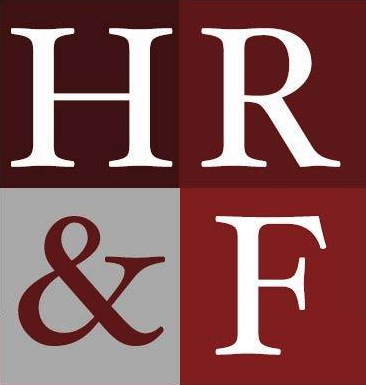Employment law compliance is a big deal for any business. Federal and state regulations, including various employment acts such as the Age Discrimination in Employment Act and Title VII of the Civil Rights Act, are numerous and complex. Keeping your business in compliance is key to a safe, fair, and efficient workplace. Compliance isn’t just about avoiding fines and penalties, it’s about creating a positive work environment and protecting employee rights and your business’s reputation. Whether you’re a new startup or an established business, working with a Douglasville business attorney can be a huge help.
In this post we’ll break down the basics of employment law compliance, why it’s important for your business, and how you can navigate this area to have a healthy and legal workplace.
What is Employment Law Compliance?
Employment law compliance means following the laws and rules of the workplace. Businesses need to know these laws, including federal statutes, to create a fair and safe workplace for employees. Compliance involves many legal requirements for both employers and employees.
Definition and Importance of Employment Law Compliance
At its simplest, employment law compliance means following federal, state, and local laws that govern how businesses treat their employees. This includes labor and employment laws about hiring, wages, working conditions, and employee rights. The importance of compliance can’t be overstated. It prevents legal issues and creates a culture of respect and fairness in the workplace.
Areas of Employment Law Compliance
- Minimum Wage: Employers must pay at least the federal or state minimum wage. Knowing these requirements helps avoid violations.
- Overtime Pay: Employees must be paid for hours worked beyond the standard workweek. Familiarity with overtime rules is key to compliance.
- Working Hours: Wage and hour laws dictate how many hours employees can work in a day or week. Following these laws protects employees from burnout and their rights.
- Workplace Safety: OSHA sets standards for workplace safety. Employers must follow these rules to protect their employees.
- Anti-Discrimination: Laws prohibit discrimination based on race, gender, age, disability, and other factors. Compliance is necessary to create an inclusive workplace.
- Employee Benefits: Employers must know their obligations for employee benefits like health insurance and retirement plans. This ensures employees get the benefits they’re entitled to.
By knowing these areas businesses can navigate the employment law compliance landscape. This knowledge protects against legal issues and creates a positive work environment.
Why Employment Law Compliance is Important
Knowing the importance of HR compliance is crucial for any business to operate successfully and morally, as it ensures adherence to employment law regulations.
Fines, Penalties, and Lawsuits
Employment law compliance is important for several reasons. First, it helps businesses avoid fines, penalties, and lawsuits from government agencies. Breaking labor laws can lead to expensive legal battles that drain resources and disrupt operations. Businesses need to stay informed to avoid these issues.
Employee Rights
Second, protecting employee rights is important. Fairness creates a positive work environment. When employees feel valued and respected it boosts morale and productivity. Following anti-discrimination laws and wage rules is part of this process, and the Equal Employment Opportunity Commission (EEOC) enforces these laws, including the Civil Rights Act and the Americans with Disabilities Act.
Company Reputation
Third, compliance strengthens the company’s reputation. Businesses that prioritize the law build trust with employees and stakeholders. This trust leads to better employee retention and a better public image. A good reputation also attracts top talent which is key in today’s job market.
Employment Laws to Know
Knowing the employment laws, including the National Labor Relations Act, is important for any business to be compliant. Here we break down the top federal laws that govern workplace practices.
Federal Laws: Equal Pay Act
- Fair Labor Standards Act (FLSA): This law sets the minimum wage, overtime pay, and recordkeeping requirements. It protects employees from unfair labor practices and requires eligible employees to be paid overtime for hours worked beyond 40 in a week.
- Affordable Care Act (ACA): The ACA requires employers to provide health insurance to full-time employees. It also includes provisions for employees with pre-existing conditions and coverage for essential health benefits.
- Family and Medical Leave Act (FMLA): This act allows eligible employees to take unpaid, job-protected leave for family and medical reasons. It gives employees the ability to care for their health or family without fear of losing their jobs.
It is crucial to correctly distinguish between employees and independent contractors in the context of employment law. This distinction has significant implications for wages, taxation, and legal compliance. The evolving challenges related to independent contractors, especially in the digital economy, include remote work and the gig economy’s impact on worker classifications.
- Title VII of the Civil Rights Act: Title VII prohibits employment discrimination based on race, color, religion, sex, or national origin. Employers must create a diverse workplace and take steps to prevent discrimination.
- Occupational Safety and Health Act (OSHA): OSHA ensures a safe and healthy work environment. Employers must comply with safety standards and have a workplace free from serious hazards.
- Equal Pay Act (EPA): The EPA requires equal pay for equal work regardless of gender. Employers must review their pay structures to avoid pay gaps.
- Americans with Disabilities Act (ADA): The ADA protects individuals with disabilities from discrimination in the workplace. Employers must provide reasonable accommodations for employees to perform their jobs effectively.
State Laws in Georgia
In addition to federal laws, Georgia has its own set of laws that businesses must follow. State laws can be different from federal laws and other states in many ways. For example, Georgia follows the federal minimum wage of $7.25 per hour but unlike some states, Georgia does not have a state-mandated paid sick leave law. Georgia also does not have a state family leave policy beyond the federal Family and Medical Leave Act (FMLA). Therefore businesses in Georgia must stay informed about these state laws to be fully compliant with both state and federal laws.
Reducing Legal Risks and Liabilities
Reducing legal risks and liabilities requires identifying and addressing HR compliance issues, knowing employment laws, and proactive management.
Stay Informed About Employment Laws
Staying informed about employment laws and regulations is the first step in reducing legal risks. Companies must keep up with federal and state changes. Regular updates help businesses stay ahead of new laws.
Document Employment Policies and Procedures
Documenting employment policies and procedures is key. Clear documentation is a reference for employees and management. It’s also proof of compliance in case of disputes. Policies should cover workplace safety, anti-discrimination, and employee benefits.
Employment Law Audits
Conducting employment law audits is proactive. Audits help identify potential compliance issues before they become bigger problems. They also allow companies to compare their current practices to the laws. Regular reviews will show areas that need improvement.
Get Legal Help When You Need It
Get legal help when you need it. Legal experts can help with complex issues. They can also help develop policies that are current with the laws. That helps avoid legal headaches down the road.
Train Managers and Supervisors on Employment Laws
Train managers and supervisors on employment laws. They are the ones who enforce policies and ensure compliance. Regular training keeps staff aware of their roles and the importance of following employment laws. That creates a compliant culture.
Contact an Experienced Douglasville Business Law Attorney Today!
Ensuring your business is fully compliant with employment laws is essential to avoiding legal pitfalls and fostering a positive workplace. If you’re feeling overwhelmed by the complexities of employment law or need expert guidance on compliance issues, don’t leave it to chance. Our team at Hartley, Rowe, and Fowler specializes in business law and can help you navigate the intricate world of employment regulations.
Contact us ASAP at 678-825-6004 for a free case review!







